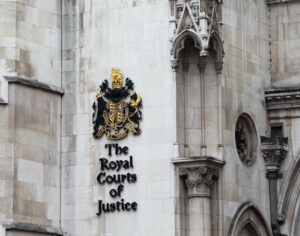The streets of the Internet can be dangerous.
Every day, people are gunned down when they leave the relatively safe main streets of Reddit, Facebook or Twitter to wander into bad neighborhood forums where they’re not known. The usual weapons are words and the common advice is to grow thick skin for protection. Consequences are usually low; feelings are about all that ever get hurt.
Sometimes, however, mobs form. Posses meet up outside a hated website and hit the owners with barrages of venomous email. If a site has a forum or a Facebook page, they try to take over. If it’s supported by ad money, they might launch a campaign against the advertisers, as happened in 2010 with Cooks Source Magazine–a New England site brought down by web users for cavalierly stealing content.
If all of this fails to satisfy the mob’s thirst for blood, they might take their anger directly to the website’s landlord, the hosting company, with burlap bags filled with DMCA take-down notices the host can’t afford to ignore.
This is exactly what happened to disabled army vet Dale Porter. For about the last two years he’s operated LendInk, a website that makes it possible for users to legally share DRM protected e-books. It was all legit; users could only share books that were approved for lending by the publishers. In fact, the lending deals were actually finalized on the websites of either Amazon or Barnes & Noble, not on the LendInk site.
Early last week, LendInk was taken offline by the company hosting the site. Site visitors are offered the cryptic message, “Currently offline. Not due to DMCA complaints,” on a page that might have been put up after the story was exposed by blogs. It’s anyone’s guess whether the site will ever be back, but that notice makes me think it will.
Porter is the victim of an ignorant lynch mob. He’s accused of piracy, of stealing from poor starving writers. In an article published Saturday on Gigaom, writer Mathew Ingram explained what happened:
“…At some point, an author noticed that their book was listed as being available for lending on the site, and sounded the alarm on Twitter, as well as discussion forums devoted to Kindle-published authors, saying the site was pirating their content. This eventually turned into a hue and cry by dozens of authors, all of whom called on their colleagues to send LendInk copyright-takedown notices under the Digital Millennium Copyright Act (DMCA).”
So the mob originated on Twitter, then picked up speed and more members on some e-book authors’ forums. Torches were lit and the mob headed down to the LendInk site. Unfortunately, no one was home; the owner, Porter, was experiencing health issues and the site was running on autopilot. No emails were being read or answered, which incited the mob even more. Eventually they gathered outside Porter’s hosting company and threatened them with the DMCA.
With that move, the mob won. At least for now, the site is gone and Porter loses everything because a bunch of hotheads jumped to the conclusion that their works were being “pirated.” Even now, when proven wrong, most members of this gang refuse to admit they were in error. There is no remorse or admission that a human being’s business is in trouble, all because they didn’t understand their own contracts with Amazon or Barnes & Noble.
It’s easy to find evidence of this lack of remorse or willingness to take responsibility. In a post on The Digital Media Machine, Ian Lamont quotes an excerpt of an email from one of the writers involved:
“I noticed my work there and sent the site a Cease and Desist Notice, giving them 48 hours to remove my work or face prosecution. They were in breech of copyright and deserved to be shut down. Am I proud they have been shut down? Am I proud to have stood up for my legal rights as author? You betcha! If they were a legitimate site and had written consent from each and every author to display their work for free (forfeiting their royalty income as a result) then I doubt very much that the site would have suddenly disappeared overnight. I am tired of plagiarism, book piracy and cheap-*ss scum bags who won’t part with a measly $2.99 or $4.99 to support authors and show respect for their hard work, not to mention the graphic artists, editors, photographers who also contributed to the birth of an author’s ebook.”
The Digital Reader, quotes another member of this writers’ mob, O. G. Tomes, who is very self righteous about her actions:
“This situation is a sad one and warrants an explanation for all the parties involved. If at any time I had received a reply from Lendink or Amazon had taken a clearer stance maybe I could have avoided being compelled to demand removal of my works; ie their links and covers. I was never contacted by anyone requesting permission to display my works for sale or lend by Lendink. I did not authorize them to pursue their activity of listing any of my books. The site openly admitted to losing their affiliation with Amazon yet continued to work toward that moment when they could once again get paid for their referrals. My attempts to contact Lendink to answer my requests for information on their procedures were ignored. Attempts to join the site to find out the information were blocked. I followed “Lendink’s” directives for filing notices directly from their site. I have attached a copy to this email.
“I think the matter warrants discussing but in a rational manner.
“At this time, I must state that I do not grant permission for this conversation or any information contained or attached herein to be used in any public forum.”
Actually, Ms. Tomes did give permission for her work to be utilized by sites like LendInk at the time she made arrangements to publish her book on Amazon, by selecting the option to make the book lendable. Many authors choose this option as a marketing tool, although they often misunderstand how it works, even though a full explanation is only a click away. It also doesn’t matter that LendInk was unable to deal with her demands. Even if Porter wasn’t ill, his arrangement was with her publisher, Amazon, and not with her.
This is scary for small website owners. At any time any small site could publish something that ticks a visitor off and suddenly DMCA notices are flying everywhere. If this sounds far fetched, read this email from one of the writers in the Lendink case, drunk on his own power, sent to blogger A. B. Dada, who was covering this story:
“I could retaliate. I could write to your hosting service. I could show them your foul speech and apparent slander. I could insist that you be taken down and threaten legal action if you aren’t removed. But I am not doing that. And do you know why?”
All it takes is for the wrong person to get mad. This can happen to any website owner, even one not nearly so acerbic and rude as Mr. Dada. All it takes is one seemingly innocent article read by an unstable person who disagrees and takes offense. In most cases the website won’t be taken offline, but the host will contact the site owner seeking some reassurances. Google, however, will not contact you at all but will begin withholding search results, while publishing an ominous public warning on their search pages about incomplete results due to a DMCA complaint against the site. Not good news for anyone who’s worked hard to generate traffic and credibility.
As far as copyrights on the Internet are concerned, the law is on the side of the accuser. If Google blocks a site as a result of a fraudulent DMCA request, they are covered. The blocked site can’t go after them, only against the party who filed the fraudulent complaint. However, if Google doesn’t block the site and the request turns out to be valid, they expose themselves to legal liability. In some cases a site might even be seized without notice by the feds, as Kim Dotcom was unlucky enough to discover.
Yup, it’s a dangerous world out there in the wild west that is the Internet. Be careful…
Christine Hall has been a journalist since 1971. In 2001, she began writing a weekly consumer computer column and started covering Linux and FOSS in 2002 after making the switch to GNU/Linux. Follow her on Twitter: @BrideOfLinux








Seems to me the problem is not so much the “Wild West” as the precise opposite–heavy-handed lawmakers beholden to large corporations; turns out a law intended only to benefit the big boys and their lawyers is not just a bad law because it enables the likes of the RIAA to commit injustices, it gives your common or garden jerk or hothead that ability too. But clearly what’s making things dangerous is not lawlessness, but a law–the DMCA.
Who has the gold, makes the rules, and in this case they made some very stupid ones. I suppose it would have been a little too hard to ram through if they’d made a condition that only individuals or corporations with a net worth over a billion dollars could apply the DMCA.
I agree with Purple Library Guy. The problem here is stupid laws, not lawlessness. LendInk did nothing wrong, and they got lynched. The people who did the lynching will walk away scott free because Dale, the owner of LendInk, lacks the financial backing to file lawsuits against the mob for filing bogus take-down notices.
And who ultimately loses? Dale obviously.
But also thousands of other indie authors out there who took the time to understand LendInk, and are now out a great opportunity. LendInk created a website where real readers could come together. This is a dream come true for most indie authors. Yet, many lacked the foresight to see what potential this site had.
It’s a sad time to be an indie author.
I just want to add to the public shaming of the mob. They need to be shaken by the scruff of the neck so it will sink in that they will be held responsible. Given the seriousness of the results, they need to experience some serious repercussions.
I hope Lendink recovers, and I offer this bit of encouragement to those authors who have realized what they’ve done and have tried to atone for it.
rjb